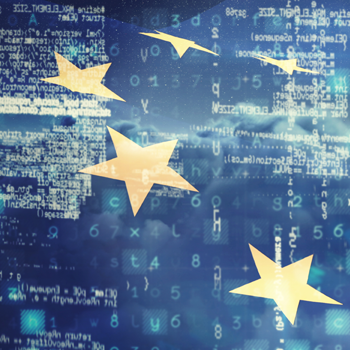Delivering Paris - a new roadmap for 2050? Roundtable report
On 12 June 2018, FleishmanHillard hosted an EnergiseEurope roundtable to discuss perspectives for the EU’s long-term decarbonisation strategy due to be published by the European Commission by the end of the year. Megan Richards, Director Energy Policy at the European Commission’s DG Energy, talked to us about the process for the drafting of the document, while Antje Fiehn, Senior Manager European Energy and Climate Policy at the Confederation of German Industry (BDI) presented the results of their study Climate Paths for Germany. During the Q&A session we had the chance to address many insightful questions to our guests.
The Commission’s new 2050 strategy
Megan Richards highlighted that the long-term strategy will have to combine a push for economic growth and an increasing effort on energy efficiency and renewable energy generation. However, the roadmap to reach Paris target of “net zero” emissions by 2050 will require big changes to our economies. Modelling and technology solutions will be the two foundations of the long-term strategy. The strategy will have to take into account a new technological and economic context, including the significant fall in the cost of renewable energy technologies and the role of digitisation. The review of the modelling on renewable energies will be key to the long-term strategy, and Ms. Richards noted that the cost to achieve the 27% target by 2020 today is the same as that to achieve a 30% by 2030. Digitisation of energy will help by changing the way consumers interact with electricity and gas markets, and also improve the way these markets operate as such.
Finance will also be crucial and the new Multiannual Financial Framework will increase the target for climate mainstream and for clean technologies. Ms. Richards announced that on 10 and 11 July, the Commission will hold a stakeholder event to discuss the low carbon transition, including sessions on finance, resources and technology. The document that the European Commission is due to publish in November 2018 will be a Communication accompanied by a staff working document. However, the political negotiations between Member States and the institutions will be tough and it will be up to the next Commission to decide on legislative proposals to follow.
The path to 2050 for the Germany industry
Antje Fiehn presented BDI report on Climate Paths for Germany, a 2-year a study which has addressed two future potential scenarios: 1) action only at national-EU level and 2) global ambitious action. The current scenario (national and EU policy measures to reach the 2030 target) will only allow Germany to reach a 61% target by 2050. The modelling for the study was based on a number of assumptions: perfect carbon leakage protection, electricity/grid infrastructure, economic abatement costs, perfect regulation, demand side management and technological progress
In the first scenario, an 80% emission reduction target is realistically achievable for Germany, which will cost 1.5 trillion EU over the next 32 years. This scenario will imply: 295 GW of wind and solar, with gas gradually replacing coal as backup generation, 90% penetration of efficiency technologies in industry, 4000 km of electrified motorways, 26 million electric vehicles and 14 million heat pumps. The scenario for reaching a 95% target is a different world and means importing 340 TWh of renewable fuels to reach a 100% renewable with PtG and gas-grid as seasonal storage and 4/5 of all passenger cars fuelled with electricity. The study concludes that such a scenario is unrealistic with technologies available today and would cost 2.3 billion over the next 32 years. Interestingly, the demand for electricity only rises marginally in both scenarios.
The report makes evident that a long-term perspective is needed to scale up investments, increase R&D and develop new technologies. An open approach towards technologies instead of putting all stakes only in those available today, such as electric cars, is the preferred route as new technologies may come up over the next years and prove more viable. Finally, CCS seems no to be an option for Germany due to a strong public resistance.
If you have any question, please contact FleishmanHillard’s Energy team.

-

Thibault leads the Integrated Communications and Reputation Management team. He is also Head of Media relations and a Certified Crisis counsellor, and leads the DE&I work of the FleishmanHillard EU. Thibault has a strong experience in Strategic and Corporate communications, public relations and public affairs. ...
Find Out More
-
Why Europe needs a water resilience strategy
February 8, 2024
-
Buckle up for 2022: the year of connected mobility
February 8, 2022
-
2022 is set to be another big year for EU Digital Policy
January 27, 2022


